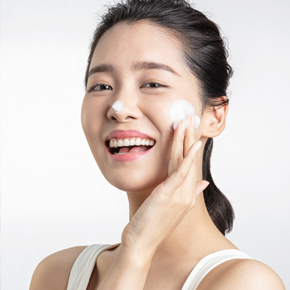It’s time to face the facts! These skincare experts debunk common beauty myths and share tips on how to have clear skin.
Are you wondering if wearing a mask can protect you from those pesky micro pollutants in the air and help you achieve flawless skin in the city? We chat with two experienced dermatologists and skin experts to find out the truth behind three common beauty myths.
Myth 1: I Can Protect my Skin From Pollution and PM 2.5 by Wearing a Mask
Unfortunately, wearing a mask is simply not enough. Korea-based Dr Ji Young Kim explains, “We cannot prevent PM 2.5 from penetrating into our skin because it is even able to penetrate into the skin’s natural immune system. It’s also very lipophilic, so it accumulates on subcutaneous fat (layer of fat underneath the skin).”
In fact, wearing a mask may do more harm than good to your skin. Dr Kim shares that wearing a mask may cause skin irritation due to the direct contact between your skin and the mask, and the moisture and heat from your breath when you exhale.
Myth 2: You Need a Strong Face Cleanser if Your Skin Type is Oily
It may seem counterintuitive, but just because your skin is oily or acne-prone does not mean that you should be using a strong face cleanser and avoiding skincare products that moisturize your skin.
According to the American Academy of Dermatology, using a face cleanser that is too strong could cause irritation and even result in your face becoming oilier than before! To get shine-free skin, try a glycerin-based foaming cleanser like the Neutrogena Deep Clean Foaming Cleanser instead. Thanks to a high content of glycerin, foaming cleansers like these can help to moisturize your skin while efficiently removing impurities.
Myth 3: Washing Your Face Twice a Day will Definitely Protect you From Developing Pimples
While washing your face twice a day is an important step to having healthy and clear skin, the type of cleanser you use matters as well. What’s more, there are many other factors that could trigger or aggravate acne, including micro pollutants in the air like PM 2.5.
How then, can you keep your face clean and reduce your chances of developing acne? “Choose the right face cleanser to remove traces of dirt and micro pollutants,” advises Taiwan-based dermatologist Dr Wu Ching Ying.
Ideally, you should also look for a gentle face cleanser that has been clinically proven to remove micro dust and harmful pollutants. The Neutrogena Deep Clean Foaming Cleanser is clinically proven to remove more than 99% of micro pollutants, helping you achieve flawless and healthy skin.
Curious about what “clinically proven” means? Find out more here.



